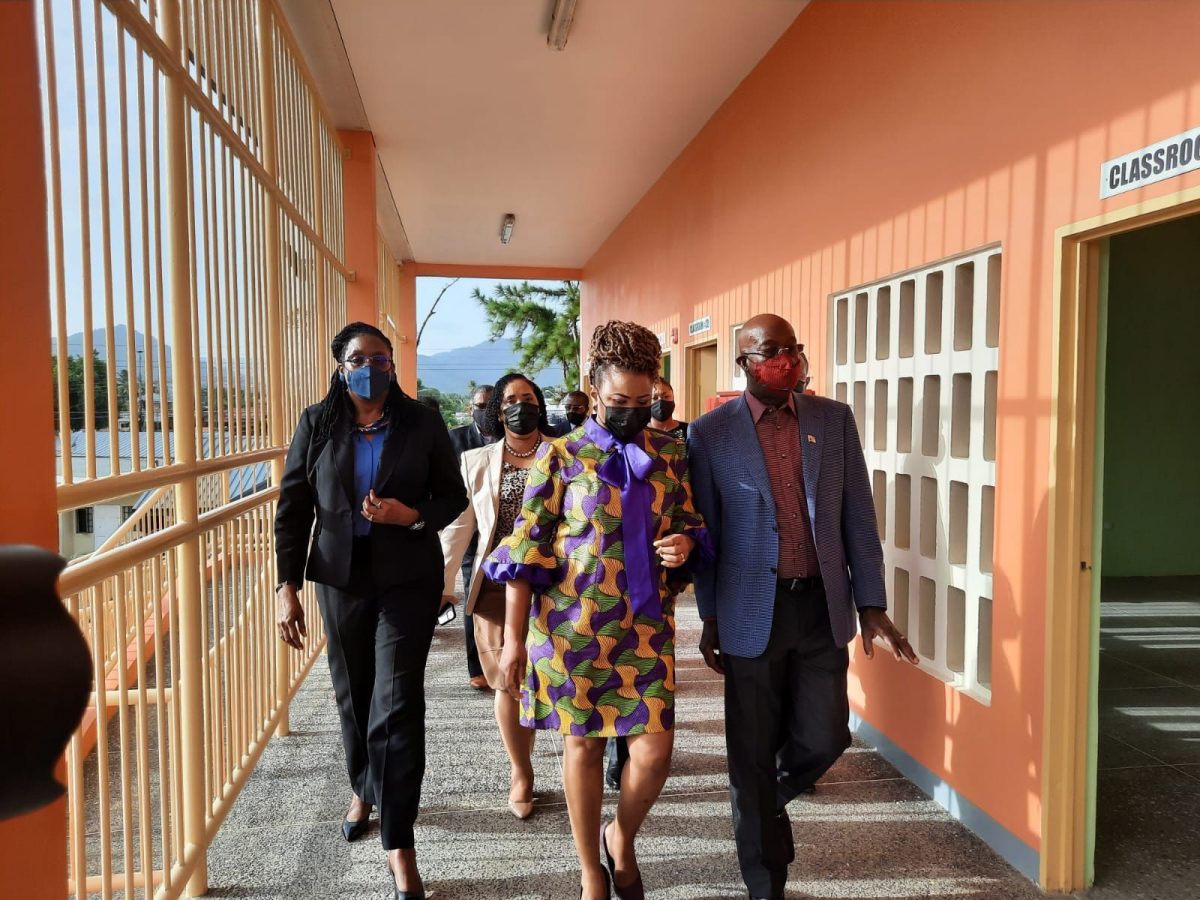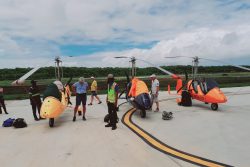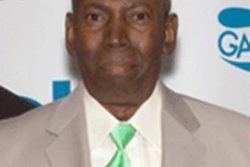(Trinidad Guardian) Prime Minister Dr Keith Rowley has said yesterday he was concerned and worried that the current policy for returning nationals could expose the country to the deadly Delta variant, and what it could mean for the unvaccinated population.
He expressed the concern while delivering the feature address at the handover ceremony for the Malabar Government Primary School yesterday.
“Three persons, at quarantine, unvaccinated persons coming in tested while in isolation, tested positive for the Delta variant,” he said.
“The policy we are following right now allows people who are vaccinated to come right in and go right home, there is a risk there because nobody has said that if you are vaccinated you cannot be infected by the Delta variant,” he said.
Rowley said in that policy, a person with a negative PCR test could develop the symptoms of the virus three days later.
“What I am saying is that there is a possibility and some element of the likelihood that the Delta variant could get into T&T. There is nothing that we are doing in all the things that we are doing that we can say confidently and sensibly that we are immune to that variant,” he said.
“We cannot guarantee and I am concerned, I am worried that the Delta variant could enter T&T and meet a largely unvaccinated population,” he said.
“If that happens, we would have passed up the opportunity to be at our best,” he said.
His concern extended to the unvaccinated juveniles.
“Young people who get over are showing significant signs of damage to their bodies, their organs are damaged even though they’ve recovered from the virus. You don’t want that to be your child,” Rowley said.
“The question arises, if these dangers exist and there are solutions to the problem, what is the role of the Government in ensuring that those solutions are had? I leave that question with you,” he said.
Dr Rowley once again hammered out a case for the acceptance of the vaccine among those who are hesitant but warned that sometimes the law was needed to ensure people made the right choice.
He said that before wearing a mask was the law, he believed people would do it because it would keep them safer.
“This Government has managed this pandemic leaving the population largely to make voluntary decisions and it is only where it was absolutely essential that the Government has allowed the situation to move from voluntary to mandatory,” he said.
“We had to put the force of law behind you wearing a mask. Initially, we thought that once you heard that if you wear a mask it would keep the virus out in such a way that you would not be as exposed. We thought that would be enough for the average person in this country,” he said.
“We end up having to put the force of law behind it,” Rowley said.
Rowley said that even with the law in place, people were still not wearing masks and the country “came very close” to running out of bed space in the hospitals.
“Had we not done that, I have every reason to believe that our infection levels would have been much higher,” he said.
He said that after solving the lack of vaccine problem, there is now a new problem of people not wanting the vaccine.
“The other problem that we are having now in this pandemic are the problems that are so personal, in the context of rights and responsibilities,” he said.
“It is a pandemic of the unvaccinated. The vaccinated population is seen to be responding better,” Rowley said.
“It is a choice that is being made and in T&T today, as our vaccination programme continues, I am still hopeful that the majority of people, I know it won’t be everybody, there’s about a 10 per cent of the population that has good reason not to be vaccinated,” Rowley said.
The Prime Minister said he was not disregarding the personal choice people had to make but asked that people think about the country as a whole.
“What is your response to the requirement, let us count ourselves among the vaccinated because that is where our best human response is,” he said.
“If the vaccines are not utilised in this pandemic and they can only be utilised by your personal decision-making, then we would not have solved those problems and if we don’t solve it, then we are living with it and living dangerously and the first time that reality will strike home to many of us is when you have the need for a health care, hospital care and it is not available. Then everyone will know what time of day it is,” he said.
“If the vaccines remain on the shelf or in the fridge, and not in your arms, then that problem that we need to solve as a response to the virus would not have been solved,” Rowley said.









